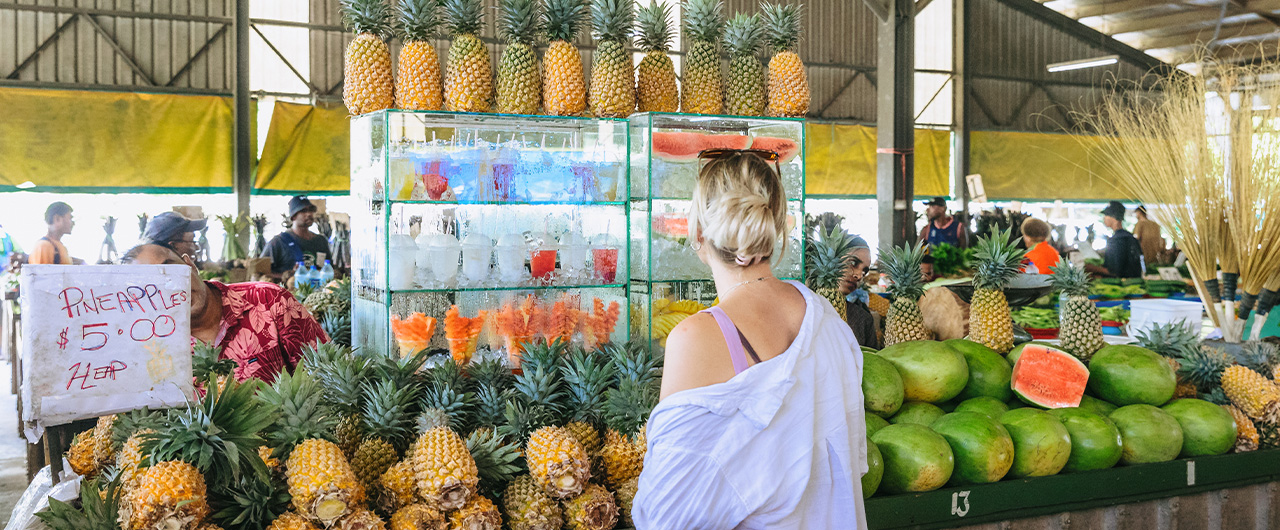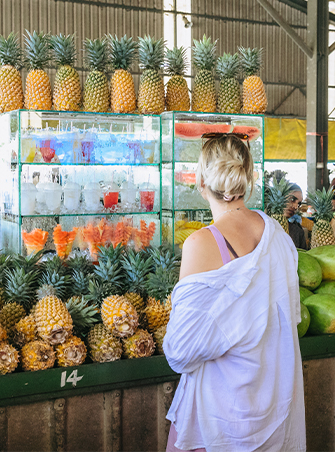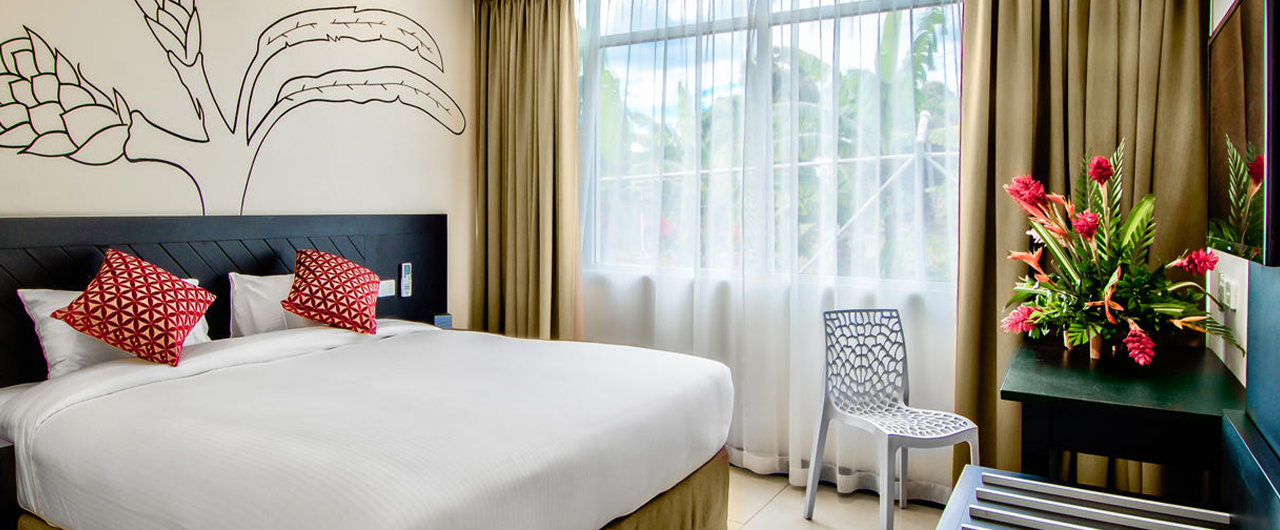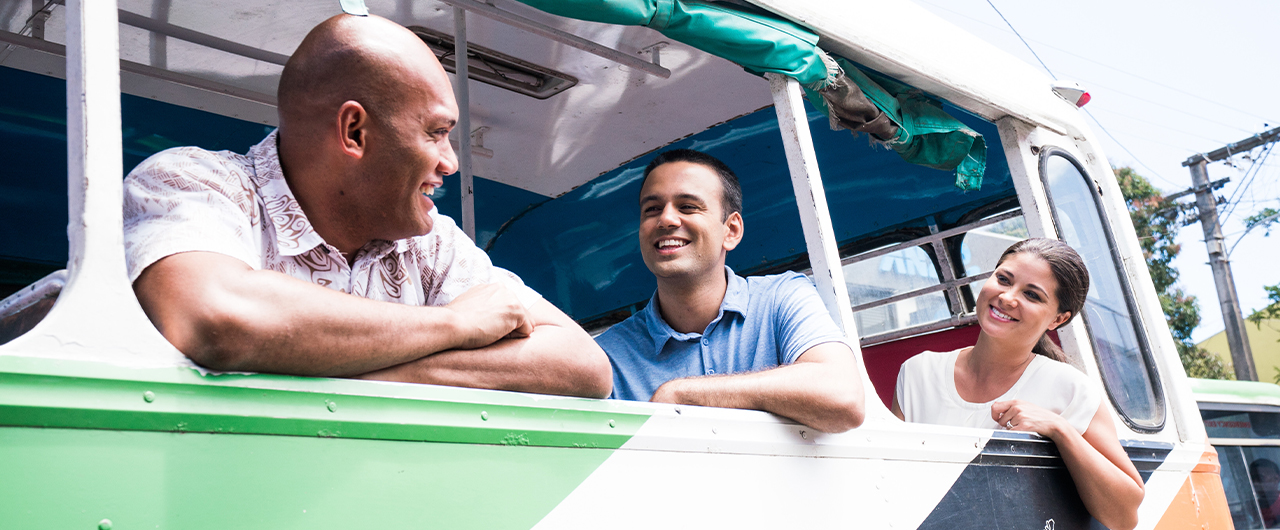Thrifty Traveler's Guide


10 Money Saving Tips for Your Dream Fiji Vacation
Go in Low or Shoulder Season
Visiting Fiji during the low or shoulder seasons is a clever way to make your money go further, while enjoying the added benefit of fewer tourists. November to April brings the wet season, but if you don’t mind some rain and humidity, you’ll be rewarded with generally cheaper flights and accommodation, less people to share the beach with and a more authentic experience of Fiji’s beauty and culture.
Book Lower Cost Accommodation
A huge portion of travel costs depends on where you stay, so opting for a wallet-friendly place to rest your head each night can really make a difference to your budget. Choose cheaper accommodation like a guesthouse, hostel or small boutique resort, and you’ll have more money to spend on experiences instead. Many of these smaller accommodation providers offer a more intimate stay than the big resorts too, on departure you’ll feel like you’re leaving a home away from home.

Book Self-Contained Accommodation
Booking somewhere with kitchen facilities can be an absolute game changer. By cooking some of your meals you can significantly cut down dining costs, and in Fiji there are plenty of opportunities to buy fresh, local produce for very reasonable prices at community markets and supermarkets. This option also gives you the flexibility to try your hand at local recipes, like kokoda or a fragrant Fijian curry.
Bring Snacks with you from Home
If you’ve got a particular snack that you (or your kids) like to have easy access to, it’s best to bring some with you. As an island nation it can be pricey to buy imported foods, and if you’re staying at a remote hotel or one of the outer islands, chances are even slimmer that you’ll find what you’re looking for. Better to be safe than sorry and ensure you’ve got some in your suitcase if you can’t live without it.
Stock Up Before Going Remote
On the same note, if you’re headed out to a remote region or island, chances are you’ll mostly eat at your resort. Some island resorts might ask that you buy a daily meal plan along with your stay. But, if you have the flexibility, grab some water, fruits and snacks before leaving the bigger towns. Big resorts usually handle special food requests if you give them a heads up but for anything extra you might need, it’s a good idea to get it before you travel remotely.
Take Public Transport where Possible
Fiji’s local buses are the most affordable way to travel between tourist sights and the major cities and offer a genuine experience of local life. Taxis are reasonably priced compared to many other destinations around the world, it’s a legal requirement for them to use the meter but for longer trips between cities it’s common to negotiate your fare. If you’re travelling between the larger islands of Viti Levu and Vanua Levu, the local no-frills ferry is extremely affordable.

Eat at Local Restaurants
Dining at local restaurants in the urban centres like Nadi, Sigatoka or Suva is a great way to experience Fijian cuisine without breaking the bank. Local eateries offer a range of traditional and Indo-Fijian dishes at cheap and cheerful prices compared to tourist-centric restaurants or resorts, and you’ll be supporting local businesses while you’re at it.
Visit the Fiji Museum and National Parks
Exploring the Fiji Museum and the stunning national parks is a great way to learn about the country’s history, culture and natural beauty. Museums are generally very cheap and national parks might have a nominal entry fee to cover maintenance costs, but it’s a small price to pay for enriching and authentic experiences that will make their mark on your trip. Find more affordable things to do in Fiji here.
Pay with Local Cash
While credit cards are widely accepted in the tourist areas of Fiji, paying with local cash can save you money on transaction fees (most businesses charge a 3% levy on credit card payments) and unfavourable exchange rates. Cash is essential if you’re heading to more remote areas, travelling by public transport or wanting to buy something small like street food or souvenirs from a market. Exchange currency at the Nadi Airport arrivals terminal, at banks in the bigger cities or get Fijian dollars out from an ATM.
Use a Local SIM Card
International roaming fees can be exorbitant, but you can get a local SIM card on arrival at the airport to significantly reduce communication and data costs. Another fairly new option is to get an eSIM, this is downloadable to your phone through an app and gives you a data-only plan to access the internet for a very reasonable price. Pick these up form Vodafone or Digicel outlets at the Nadi Arrivals terminal before you head to your resort.